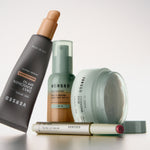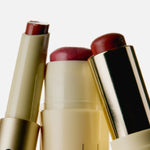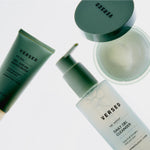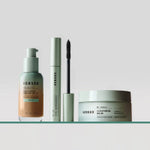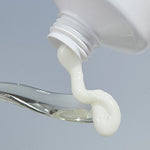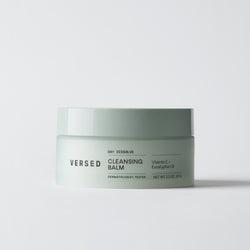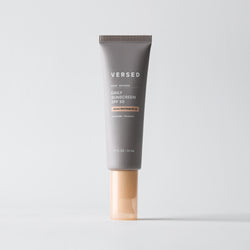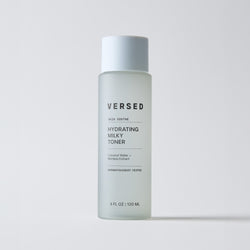Fact: More than 90% of people worldwide are affected by acne at some point in their life. So the next time you notice a bump and think “Why me?” just remember: You’re not alone. In fact, when we turned to our community to ask what you most wanted to know about dealing with breakouts, our DMs and inboxes were flooded with questions from “why am I noticing pimples on my back?” to “which treatment works best for my hormonal acne?” For expert advice, we sought out Dr. Nancy Samolitis, MD board-certified dermatologist and co-founder of Facile Dermatology, to put these questions to bed once and for all. Keep scrolling for the answers to your most frequently asked acne questions.
What's the best way to clear blackheads?
Blackheads are tiny dark bumps that form when dead skin cells on the surface of your skin block the oil in your pores. Since the trapped oil is exposed to air, these pimples appear dark in color. “Blackheads are most easily treated by facials, light peels, and manual extractions”, Samolitis advises. But if you can’t get to a facialist right now, she says “they can also be treated and prevented with topical treatments containing retinol and salicylic acid”. Our new Keep the Peace Acne-Calming Cream Cleanser uses OTC-strength 1.5% salicylic acid to keep blackheads (and other types of acne) at bay by unblocking clogged pores and removing trapped dirt, bacteria, and buildup.
How do I know if I have fungal acne?
These clusters of pus-filled bumps on the shoulders, back, and chest look like your other breakouts, but don’t respond to your go-to treatments and feel itchy. Fungal acne is caused by an overgrowth of yeast that infects hair follicles—not showering right after a sweaty workout, wearing tight-fitting clothing, and taking antibiotics (since these meds kill bacteria that otherwise keep yeast growth in check) can trigger it. “Fungal acne can be difficult to decipher from typical acne”, Samolitis warns, and may require oral medication prescribed by your dermatologist.
Should you only use drying treatments on breakouts?
That depends on what kind of acne you’re dealing with. Drying spot treatments (like Game Over, which uses sulfur to clear acne and prevent new breakouts from forming) are meant to soak up excess sebum and dry out pimples so they can fade faster—basically, this is the approach to take if you feel the temptation to pop, which can spread the infection and make your acne worse. Drying treatments are best used on non-inflammatory pimples, like whiteheads and blackheads.
For inflammatory pimples (those deep, underground spots, such as cystic acne, that haven’t quite reached the surface) switch to a spot treatment that focuses on inflammation. A cold compress can help bring down the swelling and redness, too.
Can my birth control and/or PCOS be causing my breakouts?
They could be! “Certain birth control pills, hormonal IUDs (with progesterone) and PCOS (polycystic ovary syndrome) can all stimulate acne via hormonal stimulation of the oil glands”, Samolitis says. Talk to your OB/GYN to work out a solution if you believe your hormones are at play here.
How do I treat hormonal acne?
Besides consulting with an OB/GYN or hormone specialist, turn to your go-to acne treatments that target hormone-triggered oil and bacteria. Pop on a purifying face mask (a movie night while wearing Find Clarity and a side of chocolate is one of our favorite activities to indulge in around our cycle) to exfoliate away dead skin cells and decongest pores.
Why do I get body acne and how do I treat it?
Acne on the shoulders, back, bum, and more is extremely common and often a result of trapped oil and bacteria in the pores. Besides showering immediately after sweating (post-workout or beach day, for example) and wearing loose-fitting clothing, combat breakouts anywhere from the neck down using our new Back-Up Plan Acne-Control Body Mist. Its 360-degree continuous spray uses a triple threat of acne-busting ingredients—salicylic acid, tea tree oil, and witch hazel— to treat even the hardest-to-reach spots.
Can certain foods be triggering my acne?
“This can vary greatly from person to person, but it is very common that acne is triggered by sugar, dairy, and processed food’, says Samolitis. If you think specific foods are causing your breakouts, try eliminating them from your diet one at a time to uncover the culprit, or visit a nutritionist or dietician for extra help.
Why do I always get acne in my t-zone?
You’re not alone: This is a super common place to experience breakouts. Why? “Oil glands are most prominent and active in the t-zone”, Samolitis tells us. Spend extra time massaging your cleanser in these areas and, if you’re oil-prone, follow up with a lightweight moisturizer, like Dew Point Moisturizing Gel-Cream.
Does retinol work on acne?
Retinol is more commonly known for its aging skin benefits, but it’s an extremely effective acne treatment as well! Not only does this all-star ingredient help clear active breakouts, but it'll kick start collagen production to help skin heal faster and fade away dark spots and scars leftover from acne.
How do I prevent pimples that have already formed from leaving a mark or a scar?
When it comes to hyperpigmentation, there are a few rules to follow here. First of all, don’t pop or pick at your pimples. Use an exfoliating treatment (we suggest Weekend Glow Daily Brightening Solution) to buff away dead skin cells and lift the pigment leftover from acne. Lastly, always wear sunscreen, as light rays can darken spots. And don’t forget to be patient: It can take several weeks for acne scars and dark spots to fade.
Got maskcne? Here’s how to treat breakouts (and other skin issues) triggered by your face mask.
